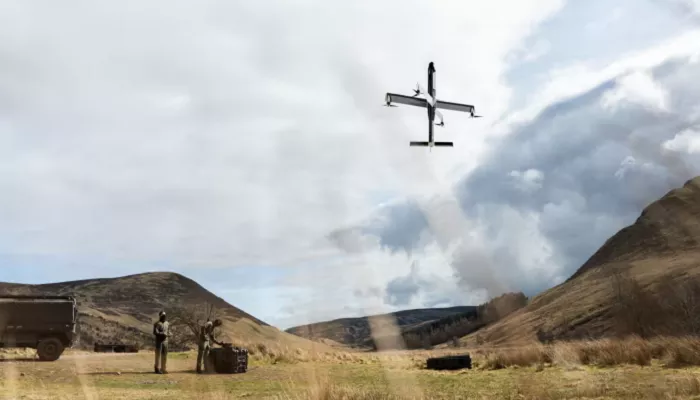The development of fully automated strike drones is closer than ever, according to Stark, a German drone start-up. The race to create weapons that can independently select and strike targets is heating up, especially with the growing use of drone technology in warfare.
The ongoing conflict in Ukraine has accelerated investment in drones, with many companies promoting their precision and low cost compared to traditional weapons like tanks and missiles. While many unmanned systems already navigate autonomously and track targets, Philip Lockwood, managing director of Stark, believes that drones capable of making independent targeting decisions are not far from deployment.
The European Union has shown support for banning fully autonomous weapons, but no legislation has been passed yet, and international efforts through the UN have made slow progress. Lockwood, a former NATO innovation leader, expressed concern that nations like Russia and China might have fewer reservations about using such technologies.
This warning comes as artificial intelligence (AI) systems continue to evolve rapidly on the battlefield. In Ukraine, numerous AI-driven systems are autonomously navigating, avoiding jamming, and tracking targets.
US-based Anduril has benefitted greatly from the demand for these new technologies, with hundreds of its Altius-600M drones purchased by the Pentagon and sent to Ukraine. Other key players include Baykar, a Turkish drone manufacturer.
In Europe, start-ups like Stark and Munich-based Helsing, along with reconnaissance drone maker Quantum Systems, are making strides in this space. Tekever, a company specializing in intelligence and surveillance drones, is also gaining attention.
Stark recently launched its first drone, the OWE-V, which features software that allows it to make real-time decisions to avoid other warfare systems. The drone can launch vertically and strike targets up to 100 kilometers away. Lockwood emphasized that human oversight is still a priority, stating, “We’re not comfortable at this stage reducing those controls.”
Traditional arms manufacturers, however, are skeptical about drones replacing larger, more expensive weapons. Armin Papperger, CEO of munitions maker Rheinmetall, dismissed the idea that drones alone could win wars, arguing that they are not a “game-changer.”
Despite this, drone start-ups like Stark are confident that growing defense budgets in Europe will keep their businesses thriving. Even if the Ukraine war ends, Lockwood believes distrust of Russia will last for generations, ensuring ongoing demand for defense technologies.


